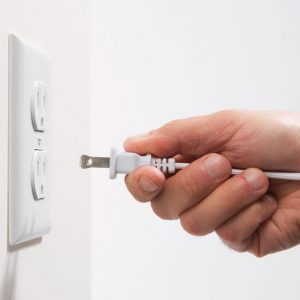Space Heater Selection
It is important to consider how it will be used before buying a space heater. Will it be used in colder rooms or other areas for additional heat, or will it be used in emergency heat? As a general rule of thumb, electric space heaters are typically safer than portable fuel-burning models (e.g. natural gas, propane, kerosene.)
Remember to choose a unit that is listed or labeled as UL (Underwriters Laboratories), CSA (Canadian Standards Association) or ETL (Intertek) by a nationally recognized testing laboratory. This will ensure that the construction and performance of the heater complies with voluntary safety standards.
Search for specific safety features to shut down the unit under certain conditions as well. These may include the following:
- Overheating
- Low oxygen levels (aka oxygen depletion sensor)
- Tip-over switch
- Touch sensor (if the grill is touched)
Setup and Use
Remember to keep at least 36 inches of any flammable or combustible material when setting up a space heater and place it on the floor, unless otherwise designed.
Areas should be free of flammable liquids where space heaters are used. Do not place them on flame-retardant or combustible surfaces like rugs or carpets, or use them to dry wet clothing.
It is a good idea to leave a partially open window or door to allow fresh air to enter when using a fuel-fired space heater in an enclosed area. This will help prevent the build-up of carbon monoxide (CO) or oxygen depletion. Never take a gas-fired or kerosene heater into a confined space as the results could be deadly.
An oxygen depletion sensor (ODS) should be used for all unfinished fuel-fired heaters manufactured after 1983. If it detects a reduced oxygen level in the area where the heater is being used, the ODS will shut down a heater.
For natural gas or propane-fired space heaters, remember the following safety tips:
- If you smell gas, do not attempt to light the space heater. Turn off all controls, open a window or door and leave the area.
- Remember that, unlike natural gas, propane is heavier than air and does not dissipate rapidly. If you smell gas, do not touch any electrical switches or use an electrical appliance, radio or telephone in the area you smell gas. Do not smoke. A spark could ignite the gas.
Electric heaters should be kept out of wet or moist places such as bathrooms as water could result in a hazard of fire or shock. Also, be sure to plug electrical space heaters directly into an outlet as overheating and fire could be caused by using extension cords.
Be sure to regularly clean your space heater and follow the manufacturer’s manual for specific maintenance and inspection advice.
Keep the Inside of Your Home or Business Safe with Smoke and Carbon Monoxide Detectors
We recommend that you take the time to test your smoke and carbon monoxide detectors to make your winter even safer. The most effective way to detect smoke from a fire is by using a smoke detector and signaling an alarm so you and your family can get out safely. A detector of carbon monoxide can alert you to this dangerous odorless and colorless gas being built. Make sure you test the detectors monthly and make sure they work properly after you change the batteries.
*Source: http://www.nfpa.org/research/reports-and-statistics/fire-causes/appliances-and-equipment/heating-equipment
1www.travelers.com



